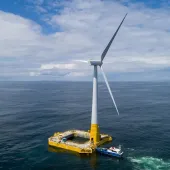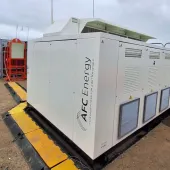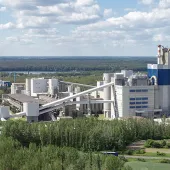Cemex pass 1,000 lower-carbon trucks milestone
Company now has more than 1,000 heavy-duty trucks powered by lower-carbon fuels
CEMEX now have more than 1,000 heavy-duty trucks powered with lower-carbon fuels as part of a comprehensive transition strategy seeking to decarbonize their global fleet. This initiative is part of the company’s flagship Future in Action programme to become a net-zero CO2 company by 2050.
Cemex have made significant investments over the last two years in heavy-duty trucks powered by renewable diesel and natural gas. These efforts have resulted in a reduction of approximately 5% in CO2 emissions from their owned fleet. This aligns with Cemex’s commitment to reduce third-party transport emissions by 30% by 2030, compared with the 2020 baseline.
‘Our net-zero transition is supported by proven and readily available lower-carbon technologies that guarantee that we meet our short- and medium-term decarbonization commitments,’ said Fernando A. González, chief executive officer of Cemex. ‘At the same time, we remain at the forefront of innovation and emerging transportation technologies so we can achieve our ultimate goal of becoming a net-zero CO2 company by 2050.’
Earlier in 2023, Cemex announced that Volvo Trucks had supplied them with the world’s first fully electric and zero-emission heavy concrete truckmixer. Additionally, the company has completed several multi-country pilots using full electric ready-mixed concrete trucks. Most recently, at COP28 in Dubai, Cemex unveiled a prototype of a fully electric truckmixer and expect to gradually continue introducing and testing new technologies.
Cemex are implementing a multi-pronged approach to reduce transport CO2 emissions, combining immediate action to accelerate the use of readily available lower-carbon fuels, while actively collaborating with partners to discover, pilot, learn, and scale the long-term solutions needed to achieve net-zero, including hybrid and zero-emission vehicles.
Renewable diesel and natural gas have a carbon footprint that is approximately 70% and 25% lower than regular diesel, respectively. These are critical transitional technologies that will enable a reduction in carbon emissions in the short term as heavy-duty electric vehicles become viable at an industrial scale.
While fully electric heavy-duty trucks are not yet widely available on an industrial scale, Cemex are actively collaborating with multiple original equipment manufacturers to advance net-zero transportation technologies. The company expects to gradually continue introducing and testing new prototypes for zero-emission ready-mixed concrete trucks to its fleet.
Cemex are one of the founding members of the First Movers Coalition (FMC), which brings together business leaders with global footprints to create market demand for zero-carbon solutions in this decade and jump-start the scaling of these emerging technologies. FMC members have committed to having 30% of their heavy-duty on-highway transport purchases be zero emissions by 2030.










